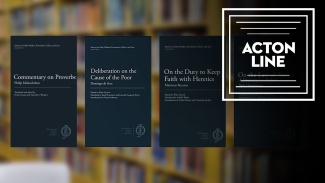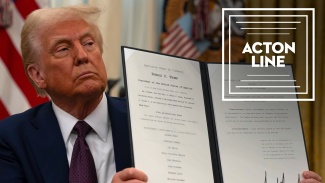
Overview
Along with more than half a million American deaths, lockdowns and federal mandates, the COVID-19 pandemic brought with it unprecedented government spending and economic disruption. In this episode, Acton Institute’s research fellows, Dan Hugger and Dylan Pahman evaluate the economic and moral implications of the COVID relief bill.
In March 2021, the Biden administration passed a 1.9 trillion dollar COVID stimulus package to provide monetary aid for the American people under the guise of a “COVID relief bill”. However, a little less than 9% of this bill directly targets public health relief. In a live economy, how does this amount of government spending shape the future of America?
Hugger and Pahman discuss the true purpose of a stimulus package, the Biden administration’s COVID relief bill itself and its effect on the future economy, how the American people should react morally, and if stimulus checks could have been rolled out in a more effective way.
Will the fiscal legacy of the massive COVID relief bill remain or can America get back on track?
Three core principles to evaluate the coronavirus stimulus
Parenting after the pandemic: More freedom, less ‘safetyism’
States’ rights, federal behavior: Alabama and COVID-19 spending














